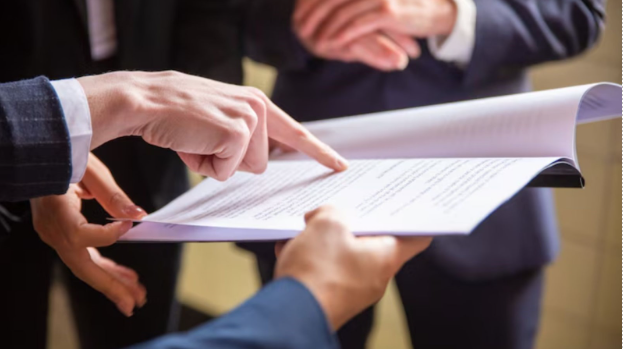In an age marked by rampant breaches of national security, government agencies must tighten their security clearance policies. Implementing more stringent security clearance frameworks ensures that sensitive state information is only accessible to trustworthy and authorized contractors. It’s a proactive way to avert aggressive cyber incidents targeted at critical government infrastructures and their costly implications.
By adopting strict security clearance measures, the government can also validate a vendor’s integrity. This is critical in eliminating unscrupulous suppliers, posers, and other dishonest elements.
Many government agencies have since embraced polygraph testing as a means to enhance the safety of sensitive information shared with contractors. But do lie detector tests have a role to play in government contracting?
Let’s find out.
Why Integrate Polygraph Testing Into Government Contracting?

When government agencies invite prospective vendors, they aren’t simply looking for companies with financial and logistical wherewithal. Prospective bidders must also be individuals who pose zero risks to national security.
By administering a polygraph test, government agencies can uncover a person’s past conduct that could jeopardize national security. Lie detector tests are particularly useful where an individual’s credibility has been severely attacked.
Other significant aspects of polygraph exams in government contracting include:
1. Identifying National Security Threats
The government may rely on findings from lie detector tests, alongside other pieces of evidence, to stop a criminal in their tracks.
Potential threats to national security who pose as genuine vendors are immediately arrested and charged.
2. Crime Deterrence
Integrating lie detector tests into government contracting can serve as an effective deterrence against potential criminals.
If a vendor knows that they’ll be subjected to a mandatory polygraph test to be qualified for government contracts, they’ll be wary about applying for the tenders.
3. Supporting Counterespionage
Double agents are known to be shrewd and cunning. While they’ve mastered numerous tricks of accessing top-secret information, a commonly deployed ploy is posing as vendors.
Polygraph tests can bridge the gap between truth and deception, enabling government agencies to validate an individual’s loyalty.

Types of Sensitive Government Information That Polygraphs May Safeguard
Sensitive government information falls into three fundamental categories. They include Confidential, Secret, and Top Secret.
While each category requires specific levels of protection, their dissemination can be effectively regulated through robust security procedures.
When dealing with government contracts, the term “sensitive information” often denotes two specific categories of information – Federal Contract Information (FCI) and Controlled Unclassified Information (CUI).
Both FCI and CUI require heightened protection measures. The difference is that FCI isn’t meant for public dissemination, while CUI may be shared with the general public.
Due to that distinction, government vendors entrusted with CUI must undergo stricter vetting to ensure they pose no threats to national security.
Note that there are different types of lie detector tests. However, when it comes to government contracting, prospective vendors should undergo polygraph testing specifically focused on safeguarding government secrets.
Government Agencies That Commonly Administer Polygraph Tests
Lie detector tests are becoming a standard procedure in several government agencies, including:
- The National Security Agency (NSA)
- The Federal Bureau of Investigation (FBI)
- The Central Intelligence Agency (CIA)
- The Department of Defense (DoD)
- The Drug Enforcement Agency (DEA)
- Corrections Department
- Border Patrol
Due to the raging debate on the authenticity of lie detector tests, most of these agencies haven’t publicly admitted to polygraphing their vendors. At least not as an official vetting procedure.

Commonly Asked Polygraph Questions in Government Contracting
Government contracting polygraphs often start with your personal history. You may be asked questions relating to your previous arrests, convictions, or use of illegal drugs.
The next round of questions may address one or more of the following categories:
Financial Issues
- Are you presently in debt?
- Have you ever defaulted on your previous loans?
- Are your tax obligations up to date?
Loyalty Questions
- Have you ever shared classified information with unauthorized entities?
- Do you believe you could be coerced into disclosing classified information?
Foreign Contact Questions
- Do you have a close relationship with high-ranking government officials in (COUNTRY NAME)?
- Have you ever been approached by foreign intelligence services?
Each question category must follow specific rules, including the use of dichotomy. That means a query should attract a flat ‘Yes’ or ‘No’ answer. Besides, the questions must be brief, unambiguous, and simply framed.
Can Anyone Conduct Government Polygraph Testing?
Lie detector tests conducted by government agencies are quite distinct from those undertaken in other sectors, such as law enforcement and relationship counseling.
Notably, a polygraph examiner working for government agencies must attend specific federally approved training academies, like the National Center for Credibility Assessment. That’s often in addition to graduating from other recommended polygraph schools.
In certain circumstances, the polygrapher would need to possess a four-year college degree as well.

Safeguarding Sensitive Government Information Via Regular Polygraph Testing
Polygraph tests can protect critical information in government contracts from slipping into potentially malicious hands.
By subjecting prospective vendors to lie detector tests, the government can validate the identity and credibility of each applicant. It ensures a potential supplier is not a double agent working at the behest of a hostile country.
However, polygraph testing shouldn’t be used as the sole means of safeguarding critical information in government contracts. To avert the exfiltration of sensitive data, all federal agencies must embrace other robust security protocols like the Cybersecurity Maturity Model Certification (CMMC).






